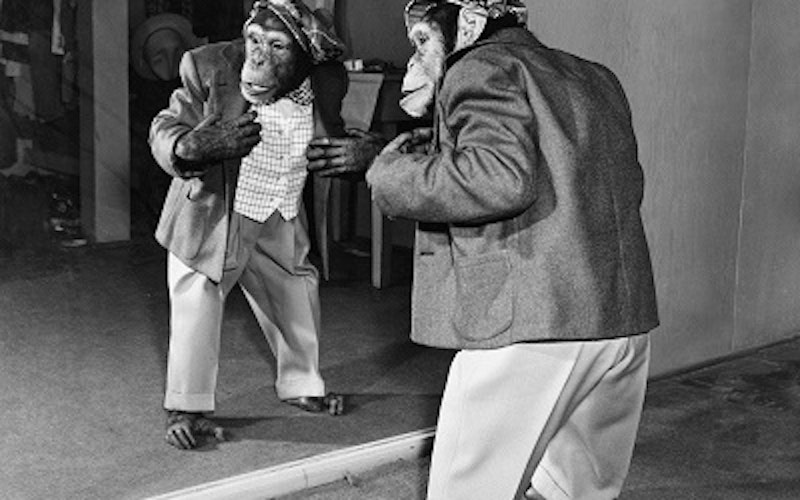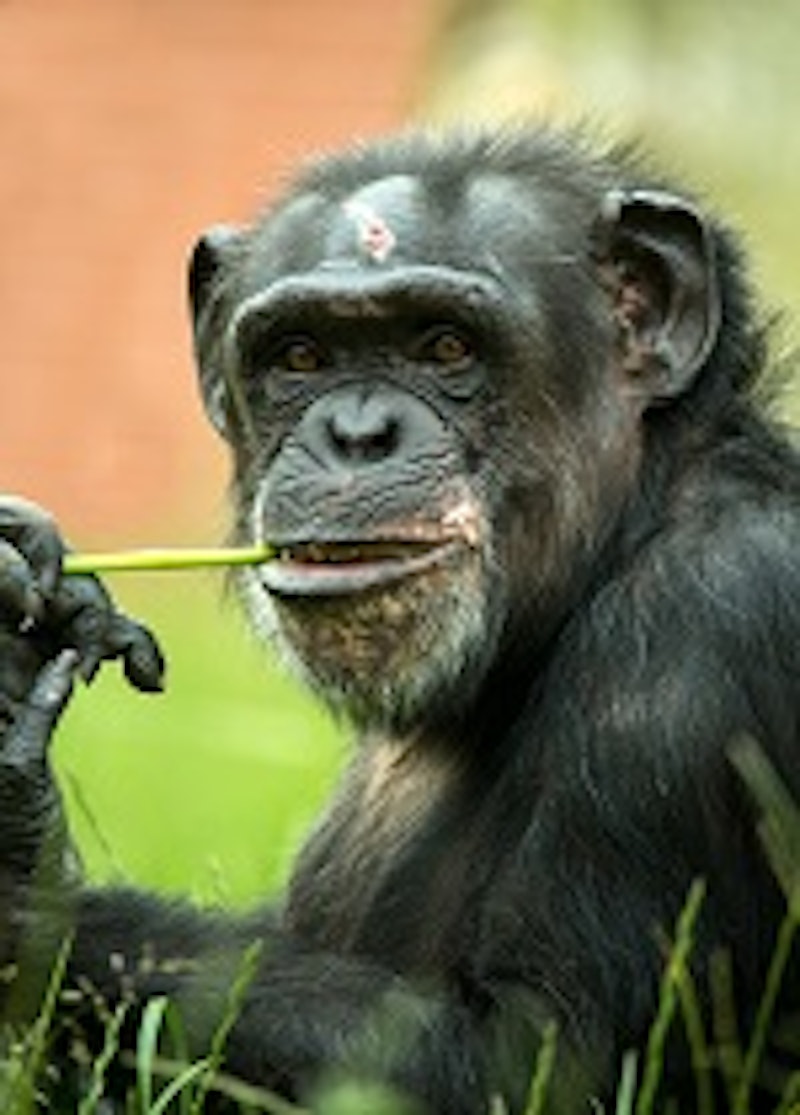
Culture At Large
Chimps are people too?
If there’s one thing we take for granted, it’s that we know what a person is. Persons are persons, and no need to apologize for the tautology, or for the feeling of redundancy that accompanies the phrase “human person.” Really? Human persons? Are there any other kinds?
But the law does funny things to common definitions. We’ve already had our cage rattled with respect to the legal notion of persons from the infamous Citizens United decision. That 2010 Supreme Court decision found that corporations are legal persons with First Amendment rights in the voting process.
Another jolt to our thinking about persons arrived recently in the New York courts. As reported in The New York Times, late last year lawsuits were filed on behalf of four chimpanzees claiming that they were being confined counter to their interests or rights. What makes these lawsuits notable is that they are based not on alleged violation of animal cruelty statutes, but on a claim that, as legal persons, these chimps were entitled to be free of confinement against their will.

The lawsuits are the work of the Nonhuman Rights Project, a team of lawyers intent on expanding the legal notion of personhood. At its heart, this is a pragmatic question of legal standing concerning who has status to bring a lawsuit, rather than some philosophical windmill-tilting about persons. For many purposes, especially those involving rights and obligations, the courts are available only to aggrieved “persons.” And so for an animal’s grievance to carry legal weight, it must somehow qualify as a person.
<p>I don’t know how much attention these cases will get. Perhaps they will fade into the background noise of our cultural commotion. I hope not, just as I hope that Christian voices don’t lapse into formulaic outrage about humans being the only creatures with souls and the only ones made in the image of God. I think people - and this goes for Christians as well - have a lot of revision to do in our thinking about animals. </p>
<p>In the 1700s, animals were purely property, with the classic understanding that ownership means the power to destroy or damage at whim. We’ve come a long way since then, to the point at which animal cruelty is outlawed and property rights are significantly curtailed. We have a dawning recognition that <em>something</em> about animals, especially higher animals, warrants a greater level of protection and respect.</p>
<p>The argument now being made is quite sophisticated, with complex notions of personhood. It isn’t <em>equating</em> humans and animals, simply saying that whatever it is about humans that warrants protection from indignities and injustices also applies to animals that share, at least in some degree, that “whatever it is.” And the list keeps getting longer as to what humans and some animals share: rationality; self-consciousness; empathy; emotions; a sense of the future; and culture and the ability to pass it on. And do I dare say it? “<em>Person</em>ality?”</p>
Animals are not ours to own. If you doubt that, read Psalm 50. If you still doubt that, read it again. Animals belong to God, and the most we can claim is stewardship, a responsibility for their well-being and a companionship in community. The chimpanzees in the Times article were born in captivity and survived the circus circuit until reaching neglectful confinement in their old age. Their living conditions are nasty, brutish and, alas, anything but short in duration. I, for one, would think it a grand thing if they had their day in court.
We have a dawning recognition that something about animals warrants a greater level of protection and respect.
Topics: Culture At Large, Science & Technology, Environment, News & Politics, Social Trends